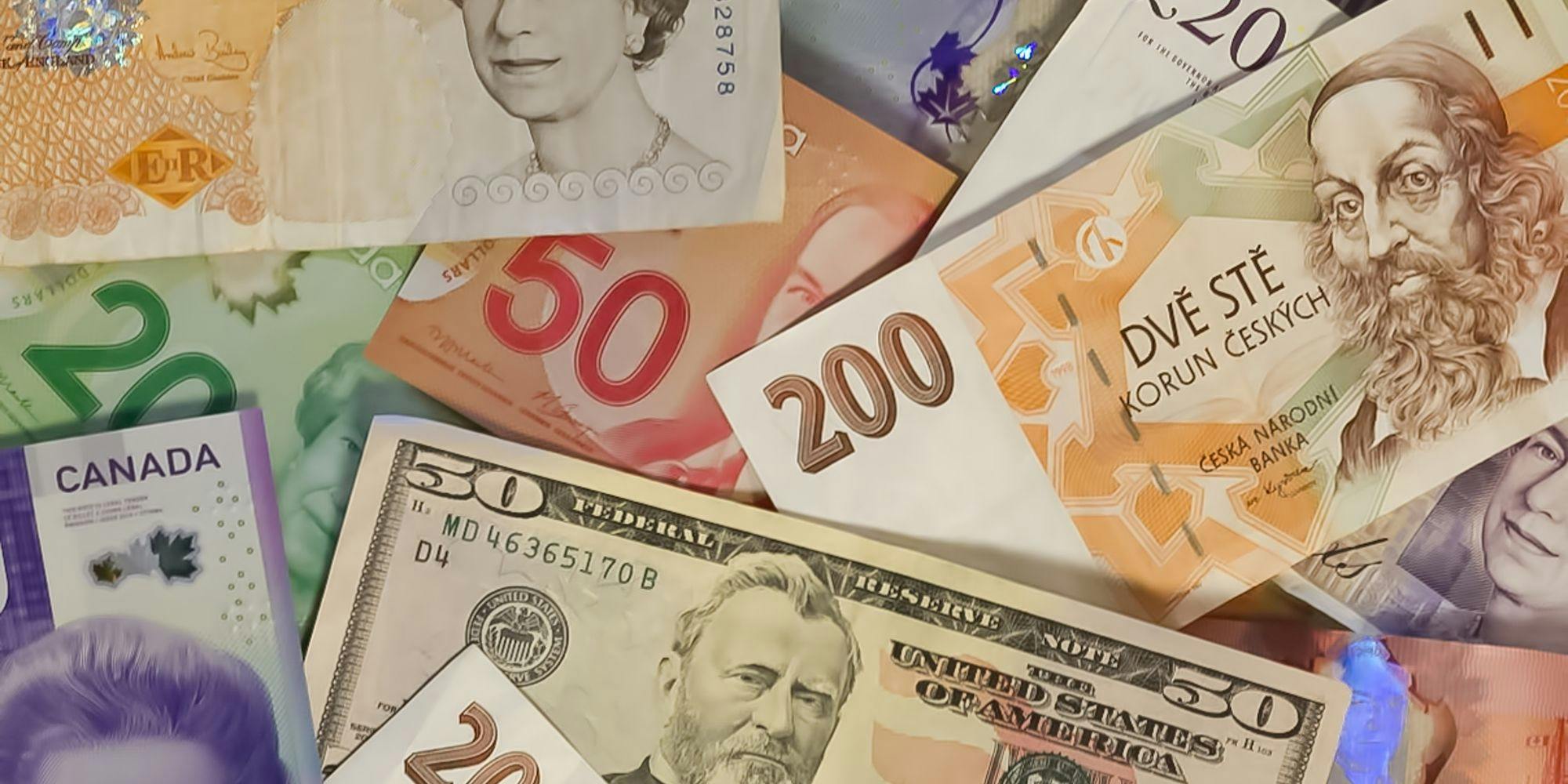
What is Foreign Currency Investing?
Foreign currency investing, often referred to as forex trading, involves the buying, selling, or holding of currencies with the aim of making a profit. This type of investment strategy is based on the premise that the value of one currency against another will change over time due to a variety of economic and geopolitical factors.
For example, if you believe that the value of the US Dollar will increase against the British Pound, you would buy US Dollars while selling British Pounds. If the value of the US Dollar does indeed rise, you can then sell it for a profit.
Foreign currency investing offers a unique investment opportunity as the forex market operates 24 hours a day, five days a week. This allows for continuous trading and the potential for gains during any time of the day, regardless of your location.
Understanding the Forex Market
The forex market, short for the foreign exchange market, is the largest and most liquid financial market in the world. It dwarfs other markets like stock or bond markets in terms of trading volume. Every day, trillions of dollars are exchanged in the forex market by a wide range of participants, from central banks and financial institutions to individual investors.
Unlike stocks or bonds, which are traded on an exchange, forex trading takes place directly between two parties in an over-the-counter (OTC) market. This means that the forex market doesn't have a centralised exchange or clearing house. Instead, forex trading is conducted electronically over computer networks between traders around the world.
The forex market is primarily made up of currency pairs. Each pair represents the value of one currency relative to another. For example, the GBP/USD currency pair represents the value of the British Pound against the US Dollar. When trading forex, you're essentially betting on the direction of one currency against another.
Investing in foreign currencies can be a profitable venture if done correctly. However, it's also fraught with risks, and as such, it's important to approach this investment avenue with a thorough understanding of the forex market and the factors that influence currency values. As part of your broader investment portfolio, foreign currency investing can offer diversification benefits. For more information on diversification strategies, you can check out our article on diversifying internationally.
The Basics of Investing in Foreign Currencies
Understanding the fundamentals of foreign currency investing is an essential step towards diversifying your portfolio and tapping into the global market. This section will guide you through the basics of how Forex trading works and the significance of currency pairs.
How Forex Trading Works
Forex trading, short for foreign exchange trading, involves the buying and selling of currencies. The aim is to profit from the fluctuating exchange rates between these currencies.
The forex market operates 24 hours a day, five days a week, and it is the largest and most liquid financial market in the world. Unlike other financial markets, there is no physical location for forex trading; all transactions take place electronically over-the-counter (OTC), meaning they occur through a network of computers rather than on a centralized exchange.
In forex trading, currencies are always traded in pairs. You buy one currency and simultaneously sell another. The profit or loss is determined by the difference in the exchange rate between the two currencies from the time you bought the pair to the time you sold it.
Understanding this dynamic is key to successful forex trading and can provide a new perspective on global economic movements and events. For a deeper dive into the mechanics of forex trading, check out our guide on investing in foreign currencies.
Currency Pairs and Their Significance
In the forex market, currencies are quoted as pairs. Each pair consists of a base currency and a quote (or counter) currency. The base currency is the first currency listed in the pair, and the quote currency is the second.
For example, in the EUR/USD currency pair, EUR is the base currency and USD is the quote currency. If the exchange rate for this pair is 1.20, this means that one euro (the base currency) is equivalent to 1.20 US dollars (the quote currency).
The significance of currency pairs lies in the relative value of one currency against the value of another. It's this fluctuation in exchange rates that allows for potential profits in forex trading.
Understanding how different economic, political, and social events affect the value of a currency is crucial when trading in the forex market. For example, if a country's economy is doing well, their currency might strengthen compared to others. This could be a good time to buy that currency pair, hoping that the base currency will appreciate against the quote currency.
In conclusion, investing in foreign currencies can be a viable way to diversify your investment portfolio and take advantage of global economic trends. However, like all investments, it's important to do your research and understand the risks involved. Be sure to familiarize yourself with the basics of forex trading and the significance of currency pairs before getting started.
Key Factors Impacting Currency Values
When you're investing in foreign currencies, several factors can influence the value of the currencies you're dealing with. These factors can cause the value of a currency to fluctuate, sometimes dramatically, affecting your potential return on investment. Let's consider three significant elements: economic indicators, political climate, and market sentiment.
Economic Indicators
Economic indicators give you a snapshot of a country's economic health. These indicators can include data on unemployment rates, inflation rates, Gross Domestic Product (GDP), and interest rates among others. For instance, if a country's economic indicators suggest a strong economy, its currency value may increase, and vice versa.
| Economic Indicator | Potential Impact on Currency |
|---|---|
| High GDP growth | May increase currency value |
| High inflation | May decrease currency value |
| High interest rates | May increase currency value |
| High unemployment | May decrease currency value |
Monitoring these indicators should be part of your strategy when you're investing in foreign currencies.
Political Climate
The political climate in a country can also impact its currency's value. Factors such as political stability, governance quality, and geopolitical events can significantly influence a currency's strength or weakness. For example, a country with a stable government may see its currency value increase, while political unrest or uncertainty can lead to a decrease in currency value.
| Political Factor | Potential Impact on Currency |
|---|---|
| Political stability | May increase currency value |
| Political unrest | May decrease currency value |
| Geopolitical events | Could increase or decrease currency value |
Knowing the political climate is crucial when you're investing in foreign currencies, especially if you're considering emerging markets investing.
Market Sentiment
Market sentiment refers to the overall attitude of investors towards a particular market or economy. It's influenced by a multitude of factors, including economic indicators, political climate, news events, and even rumours. If the market sentiment towards a particular currency is positive, it could increase the currency's value. Conversely, negative market sentiment could decrease a currency's value.
| Market Sentiment | Potential Impact on Currency |
|---|---|
| Positive sentiment | May increase currency value |
| Negative sentiment | May decrease currency value |
Understanding market sentiment is a key aspect of international investing strategies.
In summary, when investing in foreign currencies, it's essential to consider a range of factors that can impact the value of the currencies you're dealing with. By keeping an eye on these factors and understanding how they can affect your investment, you can make more informed decisions and potentially increase your chances of a successful investment.
Risks and Rewards of Currency Investing
Investing in foreign currencies can be a lucrative venture, offering potential returns that can diversify your investment portfolio. However, it also carries associated risks that you need to be aware of.
Potential Returns
Investing in foreign currencies can lead to significant returns, particularly if you're able to accurately predict fluctuations in currency exchange rates. This form of investment allows you to take advantage of the economic conditions in different countries, potentially reaping rewards if a currency's value increases against another.
For instance, if you anticipate that the Euro will strengthen against the British Pound, you could invest in the Euro. If the Euro does indeed increase in value, you would make a profit when you exchange the currency back to Pounds.
However, it's important to note that predicting currency fluctuations can be complex due to the myriad factors that influence the forex market. For a more comprehensive overview of potential returns from various forms of international investing, visit our guide on global investment opportunities.
Risk Factors
While there are potential profits to be made, investing in foreign currencies also comes with its share of risks. Some of the key risk factors include:
- Exchange Rate Risk: This is the risk that the currency you invest in will decrease in value against your home currency. For example, if you've invested in US Dollars and the Dollar weakens against the Pound, you'll face losses when converting the Dollars back to Pounds.
- Country Risk: This refers to the political and economic stability of the country of the currency you're investing in. Factors such as political unrest, economic downturns, or changes in government policy can impact the value of a currency.
- Interest Rate Risk: Changes in interest rates in the country of the currency you're investing in can impact the value of that currency. Generally, if a country raises its interest rates, its currency may strengthen due to increased foreign investment.
- Leverage Risk: Forex trading often involves the use of leverage, which can amplify both profits and losses. While leverage can increase potential returns, it can also lead to significant losses if the market moves against your position.
- Liquidity Risk: In some cases, you may not be able to sell your currency investment when you wish due to a lack of buyers in the market. This is more common with currencies of smaller or economically unstable countries.
Given these risks, it's crucial to thoroughly research and consider your investment strategy before investing in foreign currencies. You may also wish to seek professional guidance to help navigate the complexities of the forex market. Visit international investing strategies for more insight on managing risks and optimising returns in international investing.
Strategies for Investing in Foreign Currencies
When you're planning to diversify your investment portfolio by investing in foreign currencies, it's crucial to understand the various strategies available. These strategies can help you navigate the forex market and make informed decisions that align with your investment goals. In this section, we'll explore three common strategies: spot trading, forward contracts, and options.
Spot Trading
Spot trading is the most straightforward strategy for investing in foreign currencies. In a spot trade, you buy or sell a foreign currency for immediate delivery on the "spot". The price you pay in a spot trade is the current market price, also known as the spot rate.
Spot trading allows you to take advantage of short-term movements in currency rates. However, it's important to note that currency rates can be highly volatile and influenced by many factors, including economic indicators, political events, and market sentiment. Therefore, spot trading requires careful monitoring of the forex market and a solid understanding of the factors that influence currency rates.
Forward Contracts
A forward contract is a financial agreement that allows you to buy or sell a specific amount of foreign currency at a set price, to be delivered and paid for at a future date. This strategy can be useful if you anticipate that a currency's value will change in the future.
By locking in a price in advance, forward contracts provide a hedge against potential currency fluctuations. This can be particularly beneficial if you're making large, future transactions in a foreign currency, such as purchasing international real estate or investing in foreign stocks. However, it's worth noting that forward contracts require a commitment to buy or sell the currency, which can lead to losses if the currency's value moves in the opposite direction to what you anticipated.
Options
Options give you the right, but not the obligation, to buy or sell a set amount of foreign currency at a predetermined price within a certain timeframe. If you purchase an option and the currency's value moves in your favour, you can exercise the option and benefit from the price movement. If the currency's value moves against you, you can let the option expire, limiting your loss to the cost of the option.
Options provide a flexible way to hedge against currency risk while maintaining the potential for profit if currency rates move in your favour. However, options can be complex and require a higher level of financial knowledge compared to spot trading and forward contracts.
When choosing a strategy for investing in foreign currencies, it's important to consider your financial goals, risk tolerance, and investment horizon. You may also want to seek professional guidance to help you navigate the complexities of the forex market. For more information on international investing strategies, check out our article on international investing strategies.
Important Considerations for Foreign Currency Investing
Investing in foreign currencies can offer potential gains, but it's important to approach this form of trading with a well-considered strategy. Key considerations include diversification, adequate market research, and seeking professional guidance.
Diversification
Just as with any investment, diversification is crucial when you're investing in foreign currencies. Spreading your investments across a range of different currencies can help to mitigate risks. For instance, if one currency you've invested in performs poorly, the loss may be offset by another currency that performs well.
In addition to diversifying within forex trading, it's also worth considering diversifying your portfolio across different types of international investments. This could include international ETFs, emerging markets investing, or international real estate investments, to name just a few. For more information on strategies for diversifying internationally, check out our article on diversifying internationally.
Market Research
Understanding the forex market and the factors that influence currency values is essential when investing in foreign currencies. Regular market research can help you to identify trends, understand the impact of political and economic events, and make informed decisions about when to buy and sell.
This involves keeping up to date with global economic indicators, political climate, and market sentiment in the countries of the currencies you're trading in. There are many resources available for international stock market analysis that can help you in your research.
Professional Guidance
Given the complexity of the forex market, seeking professional guidance is often a wise move, especially if you're new to investing in foreign currencies. A financial advisor or a forex broker with expertise in international markets can provide valuable insights and advice.
They can guide you on the best strategies for forex trading, help you understand the risks involved, and provide you with the tools and resources you need to make informed investment decisions. Remember, while the potential for high returns can be tempting, it's important to understand that forex trading is not without risk. Always ensure that you're investing money that you can afford to lose.
In conclusion, investing in foreign currencies can be an exciting and potentially lucrative venture, but it's not without its challenges. By considering the importance of diversification, committing to thorough market research, and seeking professional guidance, you can navigate the complexities of the forex market and work towards achieving your investment goals.




